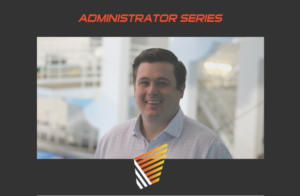A new $2 million standalone Dryland Training Centre at HBF Stadium could propel Diving WA to have its own High-Performance Program, removing one of the major deterrents for kids taking up the sport.
Diving WA Chief Executive Officer Steven Rose said WA was currently a development pillar and athletes leave the State once they reached a certain level.
“This new facility may mean that divers such as Maddison Keeney, Teju Williamson and now Nikita Hains won’t need to leave the State and can continue to chase their dream here,” he said.
Rose said the benefits to the Diving WA program by having these athletes remain in WA was immense.
“We’ve got these big names that are making Olympic teams but they are not getting noticed as much by our kids,” Rose said.
“Some of the kids are coming through not even knowing who some of these people are. To be able to potentially be training alongside them on a daily basis and seeing that dream and seeing what they are chasing, I think that will make people realise that there is a pathway here and there is the potential to go all the way.”
The Dryland Training Centre concept plan was developed in 2015 and will be a FINA international standard centre consisting of springboards, trampolines, harnesses, foam pit, weights area, sprung floor and a video replay system.
Rose said the new facility would open up opportunities for diving.
“The new facility means that divers can get 10 times more repetitions in the dryland compared to the water. It means we have more training space to increase our numbers and offer different programs.
“We are hoping to do more work with schools and also work closer with other sports which might want to use similar-type facilities.”
Like many sports, diving completely shut down for parts of 2020, and Rose questioned if people would return and if they would be able to afford to return.
Rose said diving was fortunate to emerge through COVID-19 in a good position.
“COVID-19 allowed us to look internally at a lot of our programs and services and really make sure that what we are providing, both from a programs perspective but also from ensuring we are looking after our members through our policies, and make sure everything is a bit more robust,” he said.
Using his experience in the sport industry which consists of six years as Diving WA CEO, working as the General Manager of the Northern Districts Gymnastics Club, a 12-month stint with the then Department of Sport and Recreation and prior to that at Swimming WA, Rose believed off the back of COVID-19 it was more important than ever for sports to have strong programs and products.
“We probably thought we were misplaced in the market a little bit in that we were offering a product that was too high or too expensive,” he said.
“But since coming back from COVID-19, we are positioned well and we do offer a very good, value for money program. Some people might see it as being really high, but I think what we offer and what people get is bang for buck and that is being recognised.”
After surviving COVID-19 and securing the new dryland facility, Rose believed there was a real opportunity for diving to grow membership and expand its programs.
Rose said he believed by diversifying over the next 12 to 18 months, Diving WA would increase its membership to more than 500 and tap back into the regional market.
“We are talking very closely with other venue providers. There are a few regional ones we are talking to at the moment to try and build the sport back up in those areas but also start using those facilities that are out there again,” he said.
“I think it is about changing the mindset of ‘yes it can be a dangerous sport’ and ‘yes it does have its challenges from an ongoing maintenance perspective’ but we believe the program that we offer helps to mitigate a lot of the risks.
“We can work with these venues to provide something more sustainable. So, it goes from kids just jumping off whenever to being in a structured program to then continuing on in the sport.
“We are going to have this new facility, we can run new programs, dryland only programs for instance, and we can really start to look at other opportunities to expose people to the sport of diving in different ways.”
While the prospect of a high-performance program in Perth was now real possibility, Rose was concerned with the ongoing financial model of diving.
Rose believed there was a real opportunity to change financial models so that core national funding was not solely focused on high performance goals.
“We are pretty good at understanding the building of participation and growing the sport, so we are not so reliant on that top-down funding. I think nationally, it is focused on that and if that funding is not there, sports like ours could fall away quite quickly,” he said.
“Commercial funding is something we have not traditionally done very well and we probably need to do better in. We are very heavily reliant on State Government and member-driven funds.
“Even nationally, we have not done a lot in that space, so I feel like the time is right for the sport to start driving commercial funding. We’ve got all these athletes that are quite well known now, they are becoming household names, so I think there is a real opportunity to leverage off that but it is about how we go about it and make sure we do it right.
“The bigger sports they have the reach, they’ve got all the servicing, they’ve got the capacity, they can do everything that a big organisation needs.
“But it is about better understanding what is available out there and working through that process.”
Rose believed SportWest could play a role in the commercial space to benefit the sports industry.
“It is difficult for the small sports because these commercial and corporate investors who build programs want to see return on investment, they want to see access to communities and community reach,” he said.
“We don’t have a lot of that as a small sport, so it is about helping them understand what it is we are trying to achieve, and I suppose selling that story to a degree and hopefully bringing them along for that journey and getting the right partners at the right time.
“I think SportWest can play a real hands-on role in assisting sports, not just the small sports but the big sports as well, in the areas we all struggle in human resources, marketing and finance.
“SportWest has done pretty well in that advocacy piece over the years and that is still an important piece going forward as well.
“I think SportWest has a real exciting opportunity at the moment.”






